Personal history
Pike was born in Thurles, North Tipperary in 1907. The son of clergyman William Pike and Florence Surridge, he was one of 11 children. [5] [6] Educated at Trinity College, Dublin and ordained in 1930 his ministry began with a curacy at Dundrum, Dublin after which he began a long spell as a Chaplain in the British Army, rising eventually to become Chaplain-General. [7] After his death a trust was set up to assist the sons and daughters of the clergy. [8]
He married Dorothea Elizabeth Frend, and they had three children, Caroline (b. 1940), Jane (b. 1942) and Simon (b. 1948). In 1966, Caroline married Simon Alexander Bowes-Lyon, first cousin to Elizabeth II.
Rugby career
Pike came from a sporting family, four of his brothers played rugby union for Lansdowne. His older brother Theodore was the most notable, having represented Ireland as a prop on eight occasions between 1927 and 1928. Pike joined Lansdowne during the 1930/31 season and gained his first international cap, against England, on 14 February 1931. Ireland won narrowly, and Pike retained his place as hooker for the rest of the 1931 Five Nations Championship, a win over Scotland but a loss to tournament winners Wales. In the Scotland match, Pike scored his only international points with a try.
Pike represented Ireland a total of 13 times, all consecutive. He faced the 1931 touring South Africa team, and then played in all nine matches of the 1932, 1933 and 1934 Home Nations Championships. During the 1932/33 season, Pike was chosen to play for invitational touring team, the Barbarians. [9]

The Right Reverend Percy Mark Herbert was the first Bishop of Blackburn from 1927 then Bishop of Norwich from 1942 to 1959. He was the Clerk of the Closet from 1942–63. An active Freemason, he was Provincial Grand Master for Norfolk.
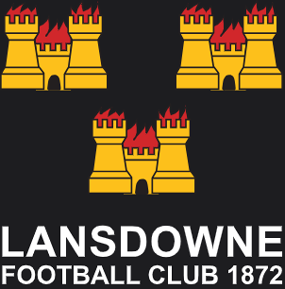
Lansdowne Football Club, also sometimes referred to as Lansdowne Rugby Football Club, is a rugby union team based in Dublin, Ireland. It was founded in 1872 by Henry Dunlop as the Irish Champion Athletic Club. Its senior team currently plays in Division 1A of the All-Ireland League. The club's playing colours are black, red and yellow hoops, with navy shorts.
Robin Roe was an Irish clergyman known for his work as an army chaplain, and a rugby union player.
John Southern Spencer is a former England international rugby union player.

Air Marshal Sir George Robert Beamish, was a senior commander in the Royal Air Force from the Second World War to his retirement in the late 1950s. Prior to the Second World War, while Beamish was in the RAF, he was a keen rugby union player, playing for Leicester and being capped 26 times for Ireland and was selected for the 1930 British Lions tour. He was also the chairman of the RAF Rugby Union and an Air Force rugby selector.

Ernest Harold Pearce was an Anglican bishop, the 106th bishop of Worcester from 1919 until his death.
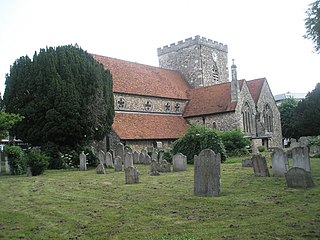
Rt Rev Harold Nickinson Rodgers was the third Anglican Bishop of Sherborne in the modern era.
Robert Crowther Abbott (1869–1927) was the inaugural Bishop of Sherborne.
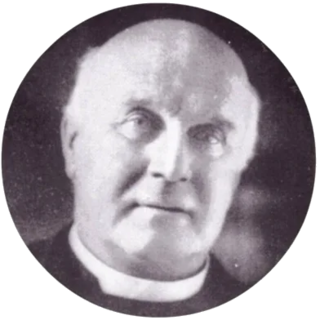
Henry Frewen Le Fanu was an Anglican bishop in Australia.
Henry Wolfe Baines was an Anglican bishop.
Ronald Winston Boon was an international rugby union wing for Wales who played club rugby for Cardiff. Boon possessed a tremendous self-confidence in his own ability and this was reflected in his nickname Cocky. Boon was a quick runner, representing Wales at the 220-yard sprint, and was an excellent drop kicker. He is best known in Welsh rugby as the man who scored all seven points in 1933 against England to end the 'Twickenham bogey', and along with Jack Morley is seen as one of the greatest Welsh wings since the country's first Golden Era of rugby.
Frank L Williams was a Welsh international rugby union centre for Wales who played club rugby for Cardiff, Wakefield and Headingley. Williams was a solid defensive player, who not only tackled well but was also unafraid to cover a grounded ball and accepted the punishment meted out.
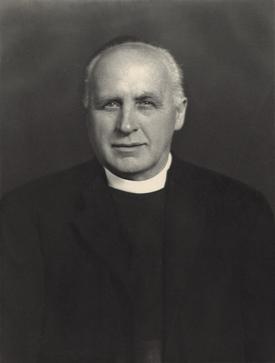
Albert Victor Baillie KCVO, DD was a Church of England clergyman during the first half of the 20th century, ending his career as Dean of Windsor. He was the Registrar of the Order of the Garter (1917–1939).

Lawrence 'Larry' Quinlivan Bulger was an Irish rugby union player, athlete and doctor. Bulger played international rugby for Ireland and in 1896 was chosen to represent a British Isles XV in their tour of South Africa. Bulger, who was nicknamed "Fat Cupid", was described as an elusive runner and a devastating tackler, one of Ireland's outstanding players.

Herbert Waddell was a Scottish rugby union fly-half who played club rugby for Glasgow Academicals and international rugby for Scotland and the British Isles. Waddell was heavily involved with the invitational tourist team, the Barbarians, not only playing for the club, but also became the fifth president of the club in 1973
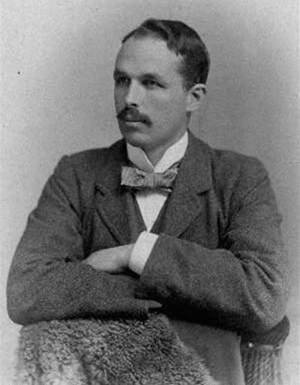
Philip Froude Hancock universally known as Froude Hancock was an English rugby union forward who played international rugby for the British Isles XV on two tours, the 1891 and 1896 tour of South Africa.
Percival Coles was an English sportsman and sporting administrator. Although Coles did not play any sport at an international level, in rugby union he was one of the founding members of the Barbarians Football Club and later became Secretary of the Rugby Football Union. As a cricketer he played for Oxford University and Sussex.
William Eldon Tucker CVO MBE TD was a Bermudian orthopaedic surgeon and rugby union player who played club rugby for Cambridge University, St. George's Hospital and Blackheath. Tucker gained his first of three international caps when he was selected for England in 1926. As a surgeon, Tucker specialised in sports injuries. He also had a long career in the Territorial Army section of the Royal Army Medical Corps, and was decorated for his Second World War service, much of which was spent in German POW camps having remained with the wounded in France during the Dunkirk evacuation.
George Albert Ormsby (1843–1924) was an Anglican bishop at the end of the 19th century and the first decades of the 20th century.
Rathmines School was a Church of Ireland secondary school in the suburb of Rathmines, Dublin: it opened in 1855 and closed in 1899. In all 2,190 pupils attended the school.
This page is based on this
Wikipedia article Text is available under the
CC BY-SA 4.0 license; additional terms may apply.
Images, videos and audio are available under their respective licenses.









